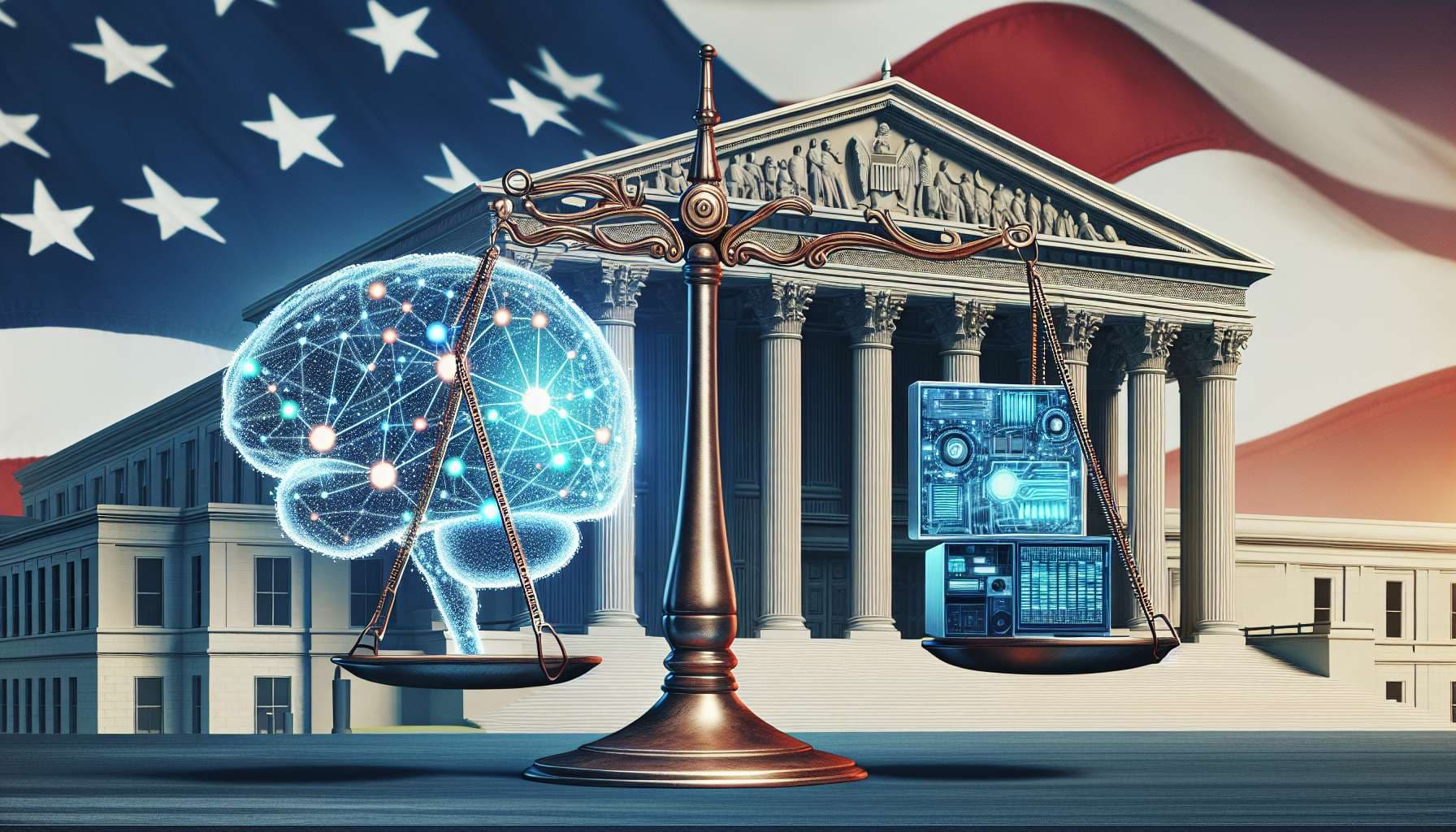
Full title of the prediction here: 10. At least one U.S. court will rule that generative AI models trained on the internet represent a violation of copyright. The issue will begin working its way up to the U.S. Supreme Court.
All these predictions are taken from Forbes/Rob Toews' "10 AI Predictions For 2024".
For the 2023 predictions you can find them here, and their resolution here.
You can find all the markets under the tag Forbes - 2024 AI Predictions.
I will resolve to whatever Forbes/Rob Toews say in their resolution article for 2024's predictions.
I might bet in this market, as I have no power over the resolution.
Description of this prediction from the article:
A significant and underappreciated legal risk looms over the entire field of generative artificial intelligence today: the world’s leading generative AI models have been trained on troves of copyrighted content, a fact that could trigger massive liability and transform the economics of the industry.
Whether it is poetry from GPT-4 or Claude 2, images from DALL-E 3 or Midjourney, or videos from Pika or Runway, generative AI models are able to produce breathtakingly sophisticated output because they have been trained on much of the world’s digital data. For the most part, AI companies have pulled this data off the internet free of charge and used it at will to develop their models.
But do the millions of individuals who actually created all that intellectual property in the first place—the humans who wrote the books, penned the poetry, took the photographs, drew the paintings, filmed the videos—have a say over whether and how it is used by AI practitioners? Do they have a right to some of the value created by the AI models that result?
The answers to these questions will hinge on courts’ interpretation of a key legal concept known as “fair use”. Fair use is a well-developed legal doctrine that has been around for centuries. But its application to the nascent field of generative AI creates complex new theoretical questions without clear answers.
“People in machine learning aren’t necessarily aware of the nuances of fair use and, at the same time, the courts have ruled that certain high-profile real-world examples are not protected fair use, yet those very same examples look like things AI is putting out,” said Stanford researcher Peter Henderson. “There’s uncertainty about how lawsuits will come out in this area.”
How will these questions get resolved? Through individual cases and court rulings.
Applying fair use doctrine to generative AI will be a complex undertaking requiring creative thinking and subjective judgment. Credible arguments and defensible conclusions will exist on both sides of the issue.
Thus, don’t be surprised to see at least one U.S. court next year rule that generative AI models like GPT-4 and Midjourney do represent copyright violations, and that the companies that built them are liable to the owners of the intellectual property on which the models were trained.
This will not resolve the issue. Other U.S. courts, in other jurisdictions, faced with different fact patterns, will in all likelihood reach the opposite conclusion: that generative AI models are protected by the fair use doctrine.
The issue will begin to work its way all the way up to the U.S. Supreme Court, which will eventually provide a conclusive legal resolution. (The path to the nation’s highest court is long and winding; don’t expect a Supreme Court ruling on this issue next year.)
In the meantime, plenty of litigation will ensue, plenty of settlements will be negotiated, and lawyers around the world will be kept busy navigating a patchwork of caselaw. Many billions of dollars will hang in the balance.
🏅 Top traders
| # | Trader | Total profit |
|---|---|---|
| 1 | Ṁ663 | |
| 2 | Ṁ216 | |
| 3 | Ṁ104 | |
| 4 | Ṁ103 | |
| 5 | Ṁ93 |